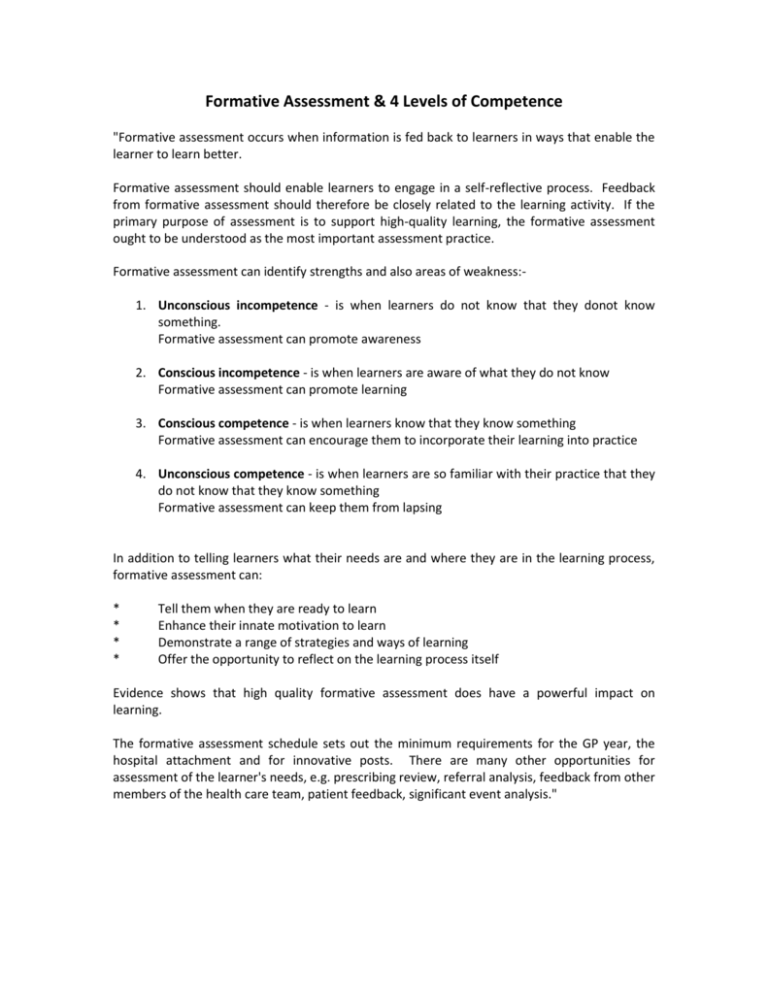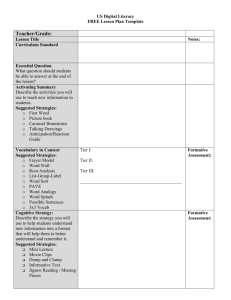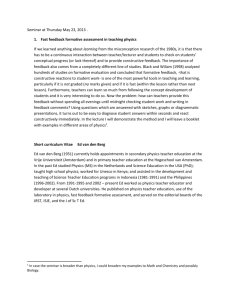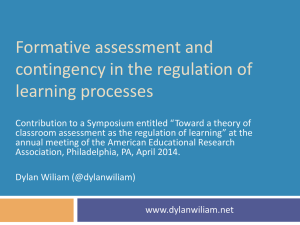Formative Assessment & Competence
advertisement

Formative Assessment & 4 Levels of Competence "Formative assessment occurs when information is fed back to learners in ways that enable the learner to learn better. Formative assessment should enable learners to engage in a self-reflective process. Feedback from formative assessment should therefore be closely related to the learning activity. If the primary purpose of assessment is to support high-quality learning, the formative assessment ought to be understood as the most important assessment practice. Formative assessment can identify strengths and also areas of weakness:1. Unconscious incompetence - is when learners do not know that they donot know something. Formative assessment can promote awareness 2. Conscious incompetence - is when learners are aware of what they do not know Formative assessment can promote learning 3. Conscious competence - is when learners know that they know something Formative assessment can encourage them to incorporate their learning into practice 4. Unconscious competence - is when learners are so familiar with their practice that they do not know that they know something Formative assessment can keep them from lapsing In addition to telling learners what their needs are and where they are in the learning process, formative assessment can: * * * * Tell them when they are ready to learn Enhance their innate motivation to learn Demonstrate a range of strategies and ways of learning Offer the opportunity to reflect on the learning process itself Evidence shows that high quality formative assessment does have a powerful impact on learning. The formative assessment schedule sets out the minimum requirements for the GP year, the hospital attachment and for innovative posts. There are many other opportunities for assessment of the learner's needs, e.g. prescribing review, referral analysis, feedback from other members of the health care team, patient feedback, significant event analysis."



